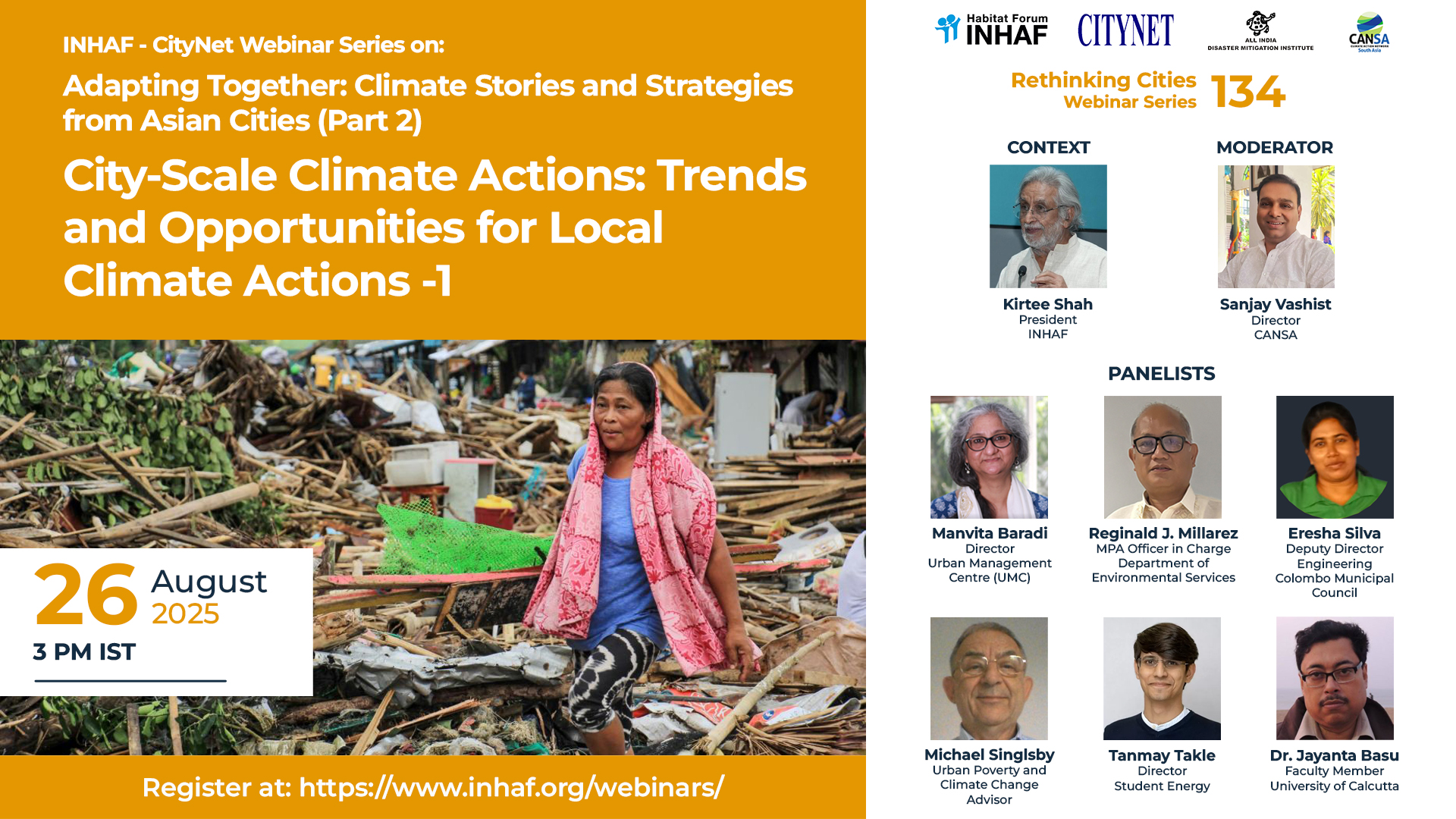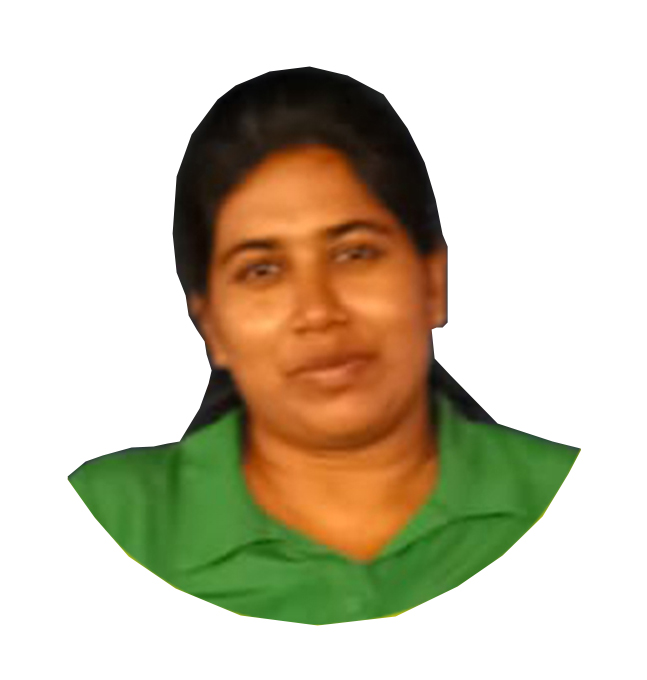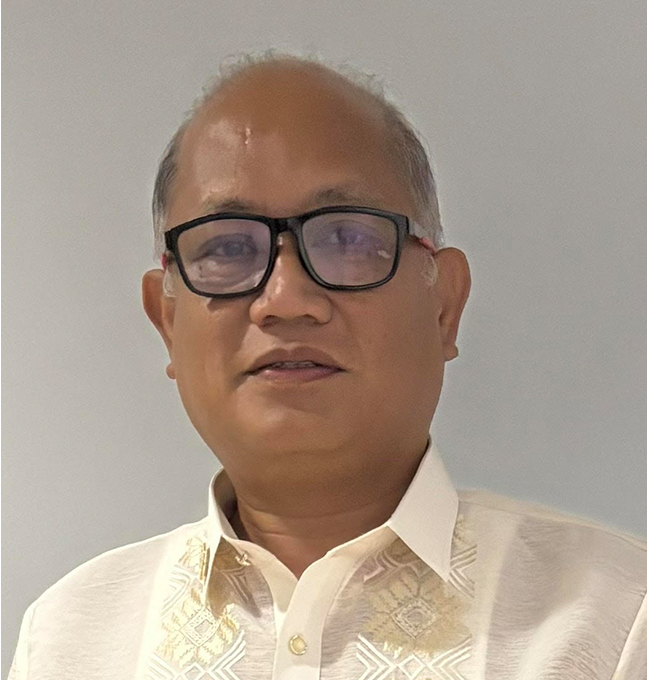
Speakers
-
 Dr. Jayanta BasuFaculty Member, University of Calcutta
Dr. Jayanta BasuFaculty Member, University of CalcuttaDr. Jayanta Basu is an environment and climate correspondent and faculty member at the University of Calcutta known for his work on climate change in eastern India, including covering international climate meetings and leading environmental campaigns. He has discussed topics like the quality of climate adaptation finance, the need for locally led adaptation strategies, and the impact of climate change on communities, with a focus on areas like the Sundarbans.
-
 Eresha SilvaDeputy Director - Engineering, Colombo Municipal Council
Eresha SilvaDeputy Director - Engineering, Colombo Municipal CouncilEresha Silva is the Deputy Director Engineering (Land Management & Environmental Development) at Colombo Municipal Council, with extensive experience as an Environmental Management Engineer. She specializes in assessing, designing, and implementing sustainable solutions in public park management, city landscape development, and resource conservation.
With a solid foundation in transportation engineering, she have successfully managed projects involving transportation planning and implementation, highway and traffic design, and cost planning/estimating to ensure effective budgetary control. Her expertise also includes monitoring design changes, evaluating their cost implications, and negotiating project variations from conception to completion, all while upholding social and environmental responsibility. -
 Manvita BaradiDirector, Urban Management Centre (UMC)
Manvita BaradiDirector, Urban Management Centre (UMC)Manvita Baradi, Director of the Urban Management Centre (UMC), has over 25 years’ experience in local governance, urban planning, service delivery, heritage management, and citizen participation. She has advised multi-state and national initiatives under NULM, SBM, PM-SVANidhi, and state schemes, integrating climate resilience, urban health, livelihoods, and sanitation to strengthen social protection, safety nets, and inclusive urban development. She has served as Director–South Asia for ICMA, consultant to USAID, and expert on World Bank programs in Afghanistan, Indonesia, and Sri Lanka.
An alumna of the Senior Executive Institute, University of Virginia, and University of Illinois, she is Gujarat State Convener of INTACH. Passionate about theatre, she uses street theatre for developmental communication and has produced videos on urban issues. She formerly served as Dean, School of Habitat Management, CEPT University. -
 Michael SinglsbyUrban Poverty and Climate Change Advisor
Michael SinglsbyUrban Poverty and Climate Change AdvisorMichael Slingsby has been working in Asia for forty years with DFID, UN-Habitat and UNDP on projects that build partnerships between local government and urban poor communities to improve city and community level infrastructure and support social and economic development programmes. He has long term working experience in Sri Lanka, India, Cambodia, Vietnam and Bangladesh. He retired from UN-Habitat as their Country Representative in Afghanistan. He subsequently worked as a consultant at the Ministry of Housing and Urban Poverty Alleviation, Government of India and for the past four years he has been working as an adviser to the Urban Planning Division at the Yangon City Development Committee on capacity building, participatory urban development and urban poverty reduction.
-
 Reginald J. MillarezMPA Officer in Charge Department of Environmental Services
Reginald J. MillarezMPA Officer in Charge Department of Environmental ServicesReginald J. Millarez, MPA, serves as the Officer-in-Charge of the Department of Environmental Services, where he leads initiatives on sustainable urban management, environmental governance, and community-centered programs. With a strong foundation in public administration, he brings experience in policy development, institutional strengthening, and service delivery. His work reflects a commitment to promoting environmental sustainability and improving the quality of life through effective governance and collaborative action.
-
 Sanjay VashistDirector, CANSA
Sanjay VashistDirector, CANSASanjay Vashist has been actively working towards mobilising civil society action on climate policies in countries of South Asia and the region. Under his leadership, CAN South Asia’s membership base has increased from 20 to 200+ NGOs, spread across countries of the South Asian region. The network has successfully consolidated the climate actions of NGOs in the region and has built bridges with the governments as partners.
-
 Tanmay TakleDirector, Student Energy
Tanmay TakleDirector, Student EnergyTanmay is a sustainable development professional with experience in public policy, advocacy and strategic partnerships. He has worked for the Climate Champions Team for COP28, where he lead engagements with cities, states, businesses and investors in India to step up climate ambition and action. Previously, he worked in Mumbai as Policy Advisor to the Minister for Environment at the Government of Maharashtra where he spearheaded multiple efforts ranging from getting all cities in the state committed to a net-zero future, to the design and implementation of the state’s decarbonisation roadmap. Tanmay is also a lead author on the Mumbai Climate Action Plan – South & West Asia’s first comprehensive city-level plan to achieve net-zero emissions by 2050.
Tanmay’s association with Student Energy began in 2020, first as a Student Energy Leaders Fellow and then in 2021 as a Youth Advisor to WSP USA. He strongly believes that the climate crisis can be solved through radical collaboration between diverse actors, especially with youth leading the charge. Tanmay is pursuing an MS in Sustainability Management at Columbia University.
Local Time
- Timezone: America/New_York
- Date: Aug 26 2025
- Time: 5:30 am
Adapting Together: Climate Stories and Strategies from Asian Cities (Part II) – City-Scale Climate Actions: Trends and Opportunities for Local Climate Actions -1
About the Webinar Series – Adapting Together: Climate Stories and Strategies from Asian Cities
Habitat Forum (INHAF), a civil society organization and CityNet member from India in collaboration with CityNet, AIDMI, CANSA, is launching a new initiative: a 5-part webinar series on Cities and Climate Change. The series is intended for all those engaged in the field of Urban Development, with the goal of responding to the unique and growing challenges posed by climate change. These challenges call for a rethinking of existing urban systems, practices, and governance mechanisms.
Cities all over the world are being battered by climate impacts such as extreme rainfall and consequent urban flooding. Since Cities contribute around 63% of nations’ GDPs, climate impacts are leading to heavy and repetitive damage and costs. Urban heat islands are posing mounting problems for livability, while spurring calls for increasing blue-green infrastructure in contexts of competing land use. Droughts and wasteful consumption have created crises in water supply in many parts of the world. Several Cities, including among CityNet members are striving to evolve, and implement coping mechanisms while also building systems to create long term resilience to these and other climate impacts.
The world as a whole, and individual nations, are also grappling with the need to reduce greenhouse gas emissions so as to check global warming that drives climate impacts. Besides national targets under the Paris Agreement, sub-national governments, especially Cities, are also being called upon to shoulder a substantial part of the emissions reduction burden, since Cities contribute about 70% of emissions. Cities are approaching these challenges in different ways and could learn a lot from each other about perspectives and practices.
Webinar 2: City-Scale Climate Actions: Trends and Opportunities for Local Climate Actions -1
Focus of this Webinar is on City case studies on climate resilience and mitigation. Presentations will cover management of the urban climate impacts and emissions in both policy and practice, reflecting stakeholders’ participation, sustainable financing, urban governance systems, sub-national capacities and international climate cooperation. The Session will unpack success factors and provide some tips for other cities regarding challenges faced. Presentations will also connect urban climate actions to nationally determined contributions (NDC).
